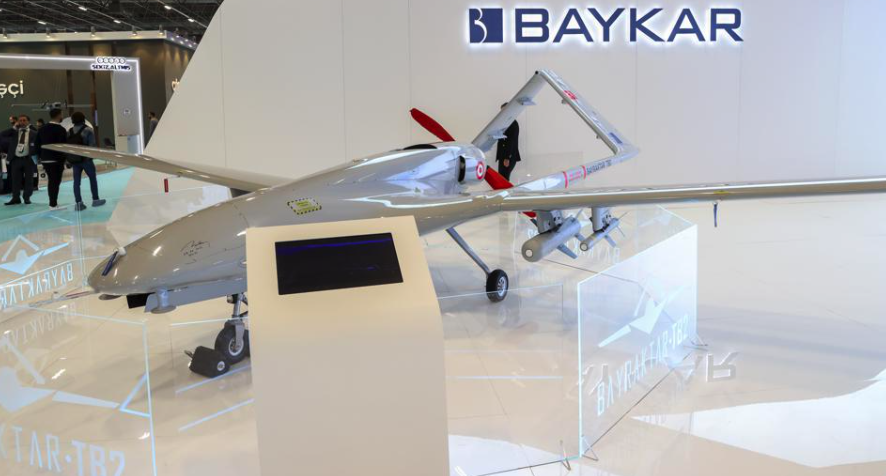Turkey and Egypt could soon normalize diplomatic relations following a political rift that has lasted just under a decade. While Ankara and Cairo will continue to have fundamental disagreements on various issues, such as Libya, a political reconciliation could ultimately lead to the latter selling the former military hardware, especially armed drones. By Paul Iddon in Forbes on April 22, 2023.
Relations between Egypt and Turkey became severely strained following the July 2013 coup in Cairo, which deposed the short-lived, democratically-elected government of President Mohamed Morsi. Egypt’s current president, Abdel Fattah el-Sisi, led that coup in his former capacity as Egypt’s army chief and subsequently became president. Turkey briefly had high hopes that it could strengthen ties with Egypt under Morsi’s Muslim Brotherhood government since that government shared a similar Islamist outlook to the ruling Justice and Development Party (AKP) in Turkey.
During Morsi’s short time in power, Egypt planned to buy ten Anka military drones from Turkey. None were ultimately delivered, most likely due to the coup and Turkey’s strong condemnation of Sisi.
Turkey’s drone industry took off in the intervening years, with the Bayraktar TB2 drone sought after by just under 30 countries worldwide. The drone also faced off against Egyptian-backed forces during Libya’s civil war, irking Cairo, which hinted it might intervene directly in Libya if the Turkish-backed forces advanced any further in mid-2020.
Now that Turkey and Egypt could soon repair relations, following in the footsteps of several regional rivals agreeing to rapprochements, Cairo may buy the TB2.
Analysts have speculated that restored diplomatic relations could lead to defense deals but cautioned that could be a long way down the road.
Turkey could offer Egypt drones because it has already sold them to one of Cairo’s rivals.
There is already an informative precedent for this.
Turkey’s sale of TB2 drones to Ethiopia in 2021 almost derailed early attempts to restore relations with Egypt. Ankara sold Addis Ababa the drones amidst the North African nation’s standoff with Egypt over the Grand Ethiopian Renaissance Dam (GERD) and its internal conflict against separatist rebels in the Tigray region. TB2 drones, operated alongside Chinese and Iranian drones, reportedly played a significant role in the Tigray War’s outcome.
Ethiopia wasn’t the only African country at odds with its neighbor that Turkey sold armed drones. Morocco also purchased an estimated 13 TB2s that same year. Algeria accused it of using them in a shadowy November 2021 drone strike that killed three of its citizens in the disputed Western Sahara region.
Ankara insisted it wasn’t taking sides in Algeria’s dispute with its western neighbor by selling Morocco drones, telling Algiers it could also buy Turkish drones. Consequently, Algeria purchased 10 Turkish Anka-S armed drones. Unlike the TB2, produced by the private company Baykar run by Turkish President Recep Erdogan’s son-in-law, the Anka drones are produced by the state-owned Turkish Aerospace Industries (TAI).
Ankara may similarly offer Cairo the TB2 or other drones it has available for export in an effort to demonstrate its neutrality in the GERD dispute. Egypt is interested in developing its drone industry and may have an interest in joint production that could include significant technology transfers.
In the Libyan civil war, the United Arab Emirates was on the same side as Egypt against Turkey and its ally in Tripoli. It even used its Chinese-built Wing Loong II drones for attacks against the Libyan capital. Since patching up ties with Turkey in 2021, Abu Dhabi ordered 120 TB2 drones for an estimated $2 billion. There has also been talk of establishing a Baykar factory on Emirati soil for local production.
While it’s presently not known if Egypt is interested in eventually acquiring TB2s or other Turkish drones, these precedents show that it’s certainly possible, if not highly likely.

